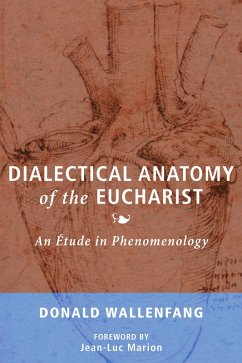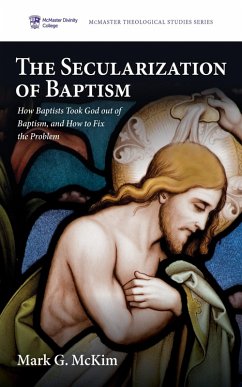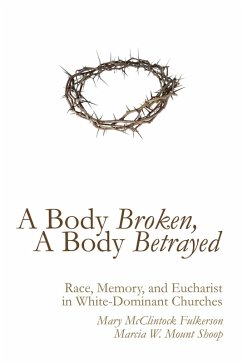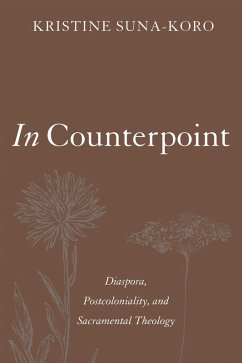
Dialectical Anatomy of the Eucharist (eBook, ePUB)
An Étude in Phenomenology
Versandkostenfrei!
Sofort per Download lieferbar
19,95 €
inkl. MwSt.
Weitere Ausgaben:

PAYBACK Punkte
10 °P sammeln!
For centuries, Christian theology has understood the Eucharist in terms of metaphysics or in protest against it. Today an opening has been made to imagine the sacrament through the method of phenomenology, bringing about new theological life and meaning. In Dialectical Anatomy of the Eucharist, Donald Wallenfang conducts a sustained analysis of the Eucharist through the aperture of phenomenology, yet concludes the study with poetic and metaphysical twists. Engaging the work of Jean-Luc Marion, Paul Ricoeur, and Emmanuel Levinas, Wallenfang proposes pioneering ideas for contemporary sacramental...
For centuries, Christian theology has understood the Eucharist in terms of metaphysics or in protest against it. Today an opening has been made to imagine the sacrament through the method of phenomenology, bringing about new theological life and meaning. In Dialectical Anatomy of the Eucharist, Donald Wallenfang conducts a sustained analysis of the Eucharist through the aperture of phenomenology, yet concludes the study with poetic and metaphysical twists. Engaging the work of Jean-Luc Marion, Paul Ricoeur, and Emmanuel Levinas, Wallenfang proposes pioneering ideas for contemporary sacramental theology that have vast implications for interfaith and interreligious dialogue. By tapping into the various currents within the Judeo-Christian tradition--Jewish, Catholic, Orthodox, and Protestant--a radical argument is developed that leverages the tension among them all. Several new frontiers are explored: dialectical theology, a fourth phenomenological reduction, the phenomenology of human personhood, the poetics of the Eucharist, and a reinterpretation of the concept of gift as conversation. On the whole, Wallenfang advances recent debates surrounding the relationship between phenomenology and theology by claiming an uncanny way out of emerging dead ends in philosophical theology: return to the fray.
Dieser Download kann aus rechtlichen Gründen nur mit Rechnungsadresse in A, D ausgeliefert werden.













